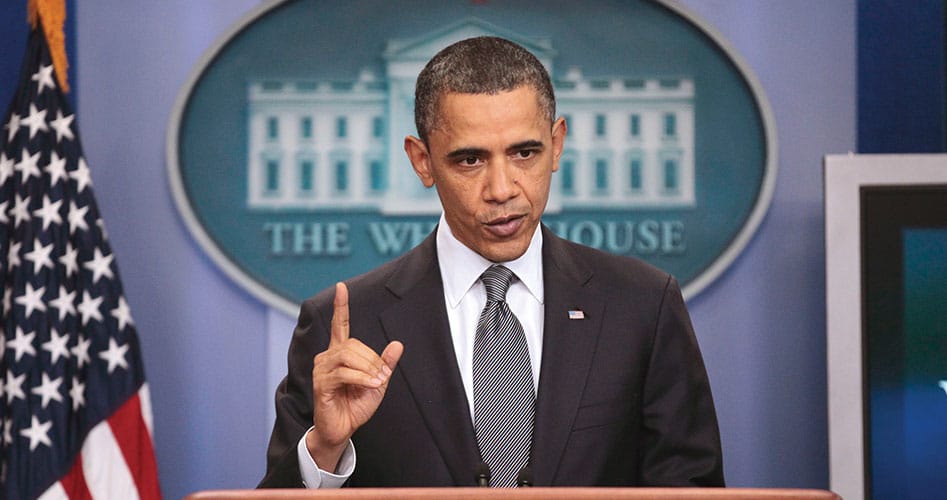Taking Spending Power From Congress
The power of the legislative branch to control spending in the Anglo-American tradition predates the founding of the American colonies. It was at the core of the dispute between the Crown and Parliament during the reign of James II of England back in the 1680s. James II abolished Parliament for not paying for his military appointments, and the King paid for the transgression with exile.
In the United States, legislative control over spending was seen by the Founding Fathers as the most essential safeguard against tyranny. James Madison wrote in Federalist, No. 58, “This power over the purse may, in fact, be regarded as the most complete and effectual weapon with which any constitution can arm the immediate representatives of the people, for obtaining a redress of every grievance, and for carrying into effect every just and salutary measure.” Madison explained that the U.S. Constitution mandates that “the House of Representatives cannot only refuse, but they alone can propose, the supplies requisite for the support of government.” This power alone, Madison argued, can overcome “all the overgrown prerogatives of the other branches of the government.”
No longer.
JBS Member or ShopJBS.org Customer?
Sign in with your ShopJBS.org account username and password or use that login to subscribe.

 Subscribe Now
Subscribe Now
- 24 Issues Per Year
- Digital Edition Access
- Exclusive Subscriber Content
- Audio provided for all articles
- Unlimited access to past issues
- Cancel anytime.
- Renews automatically

 Subscribe Now
Subscribe Now
- 24 Issues Per Year
- Print edition delivery (USA)
*Available Outside USA - Digital Edition Access
- Exclusive Subscriber Content
- Audio provided for all articles
- Unlimited access to past issues
- Cancel anytime.
- Renews automatically

